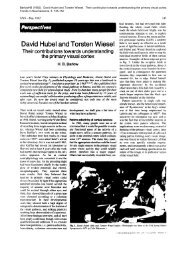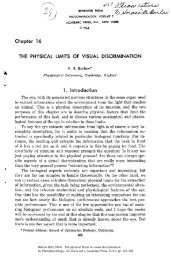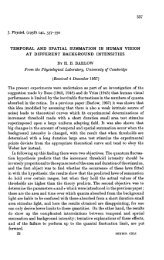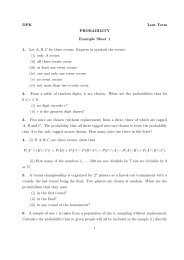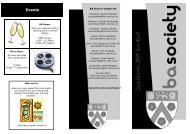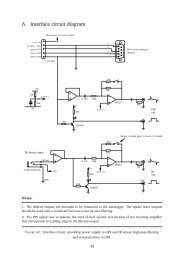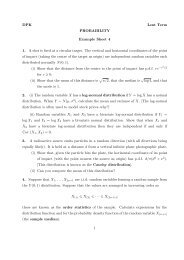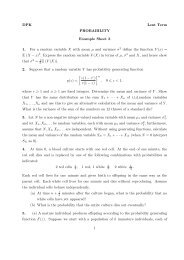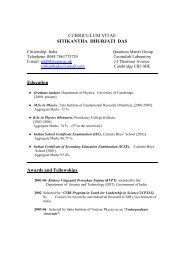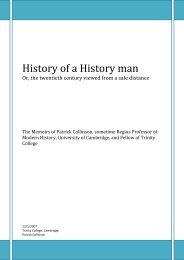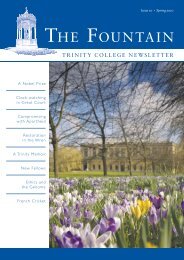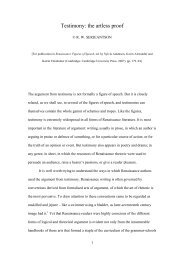Hume's General Rules - Serjeantson
Hume's General Rules - Serjeantson
Hume's General Rules - Serjeantson
You also want an ePaper? Increase the reach of your titles
YUMPU automatically turns print PDFs into web optimized ePapers that Google loves.
<strong>Serjeantson</strong>-22<br />
philosophy. Secondly, for Berkeley, the ‘general rules’ formulated by philosophers<br />
are a direct reflection of the regulation of nature effected by God (‘or the intelligence<br />
which sustains and rules the ordinary course of things’). 71 In something more than a<br />
simple play on words, human rules reflect divine rule. Hume may have accepted the<br />
basic structure of Berkeley’s account of general rules, but he never accepted that they<br />
were underwritten by the deity. 72 Finally and most characteristically, Berkeley does<br />
not regard the natural philosophers’ ‘general rules’ as providing any knowledge about<br />
relations of cause and effect. Instead, they are simply a reflection of our perception of<br />
signs: ‘Those men who frame general rules from the phenomena, and afterwards<br />
derive the phenomena from those rules, seem to consider signs rather than causes.’ 73<br />
Here again we may see Hume’s account of general rules as a response to Berkeley.<br />
Hume acknowledges that it is ‘only by signs’ that we become sensible of effects. 74<br />
But he does not accept Berkeley’s doubts about our ability to discern their causes,<br />
since that is precisely what his ‘<strong>Rules</strong> by which to judge of causes and effects’ are<br />
intended to accomplish.<br />
With this account behind us are now in a position to assess where Hume’s Treatise<br />
stands in relation to previous accounts of ‘general rules’ in early modern philosophy.<br />
The first and perhaps most important point to make is that in his hostility to long<br />
systems of ‘rules and precepts to direct our judgment, in philosophy’, Hume is an<br />
inheritor and in some senses the culmination of seventeenth-century tendencies<br />
71 Berkeley, Principles, p. 125 (§62). For discussion, see Michael Ayers, 'Natures and laws from<br />
Descartes to Hume', in The Philosophical Canon in the 17th and 18th Centuries: Essays in honour of<br />
John W. Yolton, ed. G. A. J. Rogers and Sylvana Tomaselli (Rochester, NY: University of Rochester<br />
Press, 1996), pp. 83-108, pp. 101-04.<br />
72 See Hume, Treatise, pp. 159-60 (1.3.14)<br />
73 Berkeley, Principles, p. 142 (§108); see also p. 126 (§65): ‘the connexion of ideas does not imply the<br />
relation of cause and effect, but only of a mark or sign with the thing signified.’<br />
74 Hume, Treatise, p. 151 (1.3.13).



